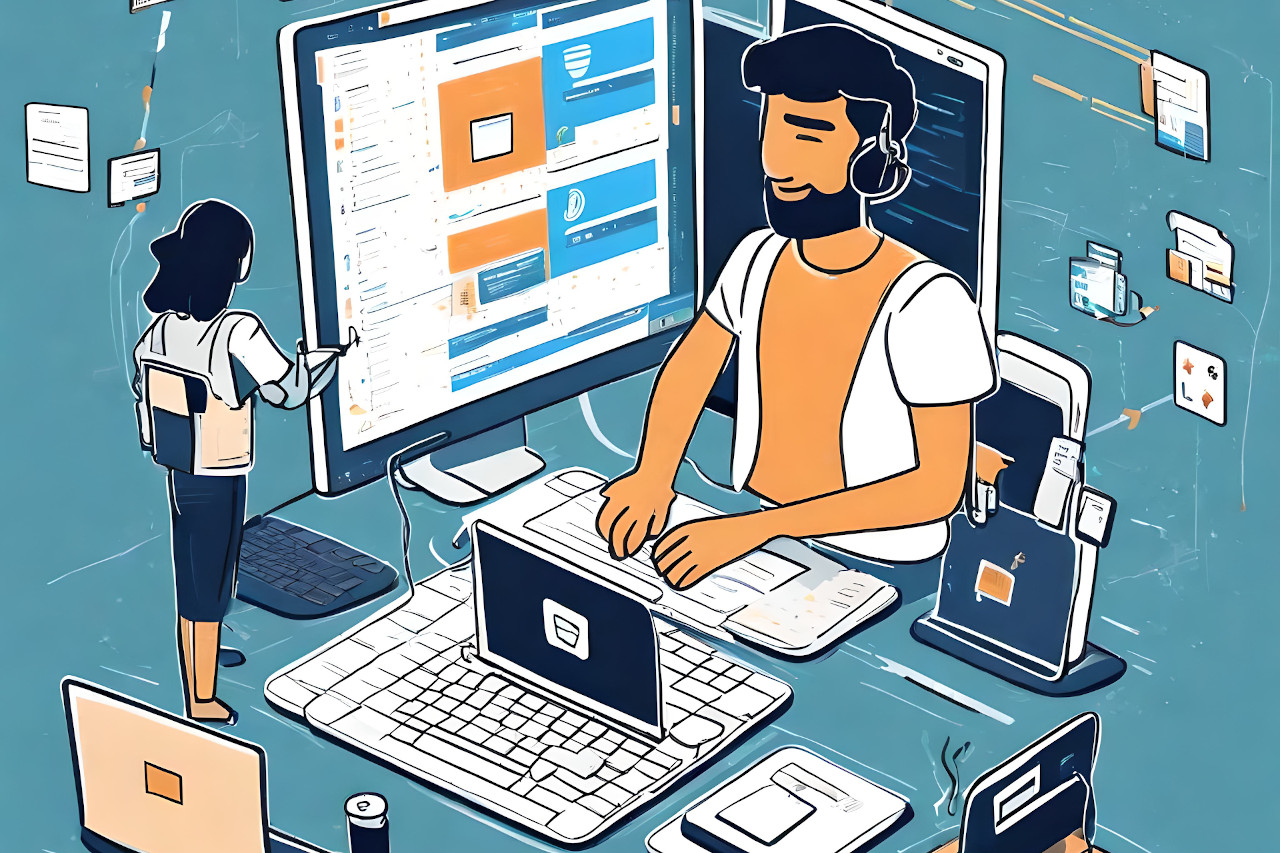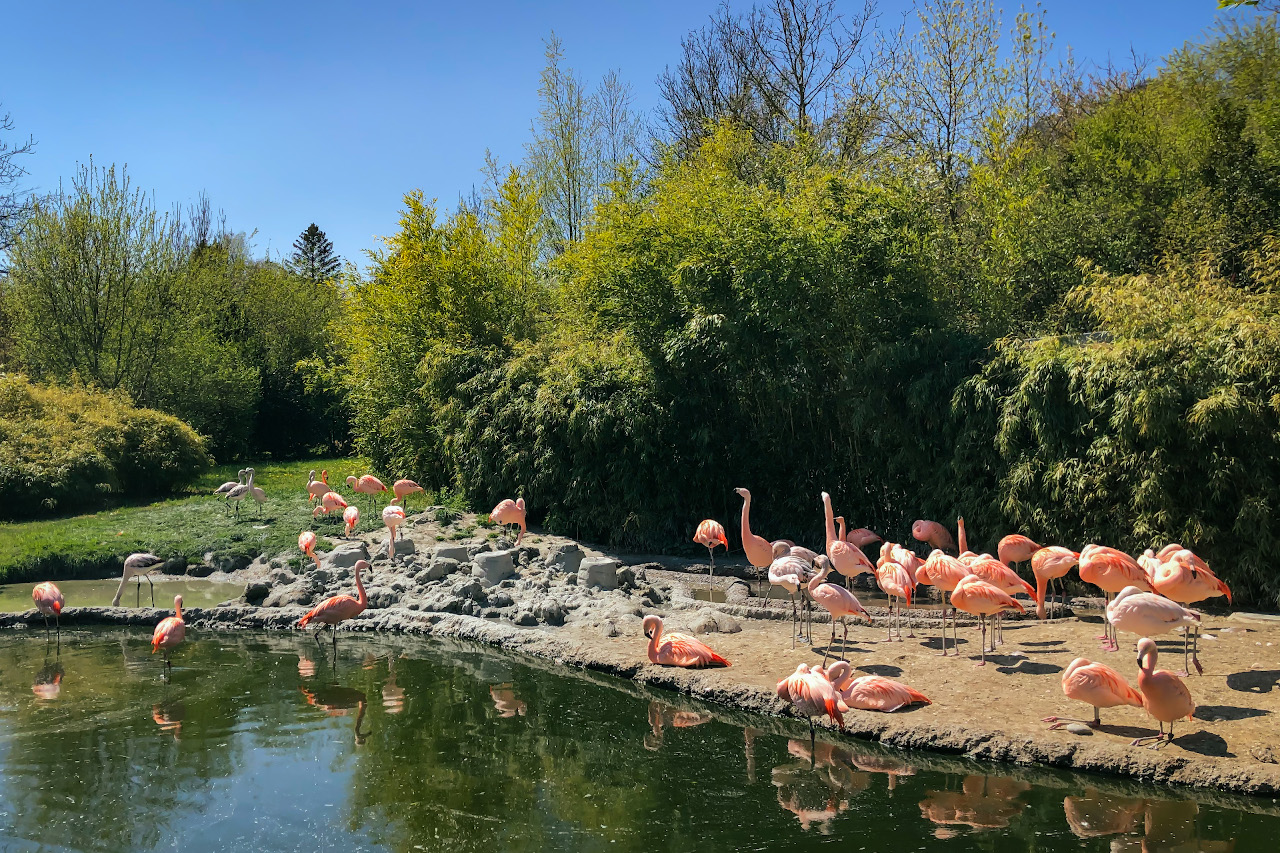
Cinematic storytelling in scientific presentations
These models dramatically lower the expertise and time required to create a short video that looks very professional.

These models dramatically lower the expertise and time required to create a short video that looks very professional.

Visual animations can be transformative to communicate complex scientific concepts to a broad audience.

The ability to delegate tasks to an assistant that can complete them faster and with improved accuracy frees up mental space to focus on more demanding tasks.

Accepting (scientific) writing as an iterative process that takes effort and imagination is a prerequisite to producing a beautiful text we enjoy reading while keeping the scientific rigour we set to ourselves.

It is crucial to set clear and realistic deadlines for the exploratory phases of a project.

Developing this skill often follows some periodicity, alternating between periods of self-reflection and peer discussion.

The diversity of topics and presentation methods pushed each presenter to make the best use of time available and highlight their key findings.

Some details of such methods may lead to an insight when dealing with my own data.

We would like to include as much information as needed to convey our message and as little as possible to keep the panel understandable.

We would like to include as much information as needed to convey our message and as little as possible to keep the panel understandable.

This exercise has helped to develop very sharp organisational and prioritisation skills to coordinate these requests effectively.

These examples demonstrate how outstanding leadership can positively impact the productivity and well-being of a research group.

Developing unit tests alongside code development forces an active dialogue between two complementary perspectives.

These models provide friendly and insightful answers that have supported me in writing clean, efficient code.

Simple changes to counter physical and mental effects of prolonged sitting.

The hackathon presented a genuinely fascinating opportunity to meet and learn from the creators of Solara.

We actively promote scientific discussions in group meetings, presenting novel results or debating future projects, and by participating in conferences that enable us to interact with other researchers in our field.

By approaching each other with curiosity and respect, we can enable peer-to-peer mentorship, where more experienced members can share their expertise.

Intellectual contributions should also be discussed and agreed upon upfront, as these will define the basis for authorship orders of such articles.

By asking to produce a more efficient version of the output, a new script is provided with many performance and memory optimisations.

A successful talk demanded an approach that could balance accessibility and depth!

It is vital to be aware of our personal goals and tailor our path accordingly.

Preparing an engaging abstract that can conquer a coveted oral presentation slot is a worthy challenge.

I believe it is still essential to provide detailed feedback that can help the authors produce an improved version of the manuscript.

This feedback is vital for authors as it highlights how the general reader would receive and interpret the work.

Finding time to accomplish (any of) the tasks piling on our list of to-do’s can become a struggle.

I especially appreciated the friendly cooperative mood among everyone, truly setting aside ongoing fervent scientific debates.

Having clear descriptions of the contributions of each author will facilitate managing the workload and settling possible authorship conflicts.

I believe that it comes down to the users intentionally curating their feeds to match their goals and needs.

In my mind, refactoring code resembles the work needed to restore a car or watch.

I always try to keep a tool to write on, such as a notebook or phone, and collect these seeds of intellectual imagination.

For each figure panel, I write a one-sentence summary to describe what is the main result that readers should take from it.

"Paraview, a powerful free visualisation software to produce stunning 2D and 3D visualisations."

Having such "minimum milestones" can be decisive in making some progress and maintaining positive momentum.

As conferences enable researchers to present their most recent results, such discussions provide instant feedback on the work and gather ideas for future tasks.

The underlying idea is to review the presentation and identify which slides could benefit from such animated tools to make the content more accessible and exciting.

Given how easy it is for in silico experiments to become more complex 'by adding just one more analysis', these initial questions also help decide on the most relevant results and the most effective way to present them clearly in a coherent story.

This exercise led to a valuable understanding of how articles in some journals also follow similar textual patterns, which can be mimicked to try to produce a comparable impact on readers.

"Managing your time becomes important only after you understand how much energy and focus you will have throughout the day and define what you want to accomplish." (by Chris Bailey)

Often, we are dealing with recent literature (e.g., last five years), and by identifying such patterns in the data, we have a better understanding of established and novel practices in the field.

Journal articles typically include a set of keywords, and these can serve as inspiration to expand our scope and the coverage of the central topic.

Providing value to students should be a primary objective of the advisors and support the planning and execution of their projects.

Reaching our target number of sets for each day gives a rewarding sense of achievement amid seemingly endless tasks.

This event brings a sense of collective effort to advance our field that is utterly fulfilling.

Minimising sources of distraction is of uttermost importance to help me remain concentrated.

Consistency leads to stability which is essential for me to reach a productive state of mind.

Easy tricks to improve the readability of visualisations!

A successful collaboration usually requires all members to be motivated and willing to contribute to the common goal.

Handy tricks to explore and prepare a dataset before carrying a data analysis!